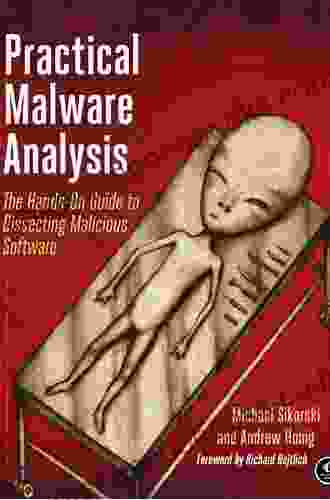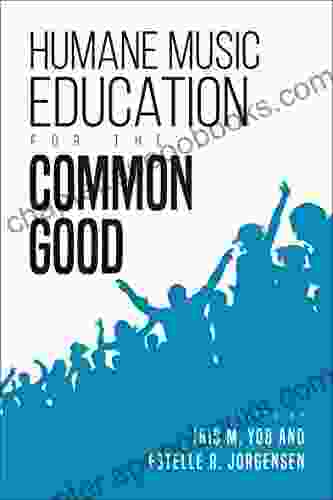Humane Music Education for the Common Good: Counterpoints

Music education has the potential to be a transformative experience for children. It can help them develop their creativity, critical thinking skills, and social-emotional intelligence. However, traditional approaches to music education often fail to live up to this potential. They are often too focused on the acquisition of musical skills, and they neglect the development of the whole child.
In his groundbreaking book, Humane Music Education for the Common Good: Counterpoints, Dr. Patrick K. Freer argues that music education should be focused on the development of the whole child, not just on the acquisition of musical skills. Freer's approach is based on the latest research in child development and music education, and it has been shown to be effective in improving student engagement, motivation, and achievement.
5 out of 5
| Language | : | English |
| File size | : | 833 KB |
| Text-to-Speech | : | Enabled |
| Screen Reader | : | Supported |
| Enhanced typesetting | : | Enabled |
| Word Wise | : | Enabled |
| Print length | : | 298 pages |
| Lending | : | Enabled |
The Principles of Humane Music Education
Freer's approach to music education is based on the following principles:
- Music education should be child-centered. This means that the needs of the child should come first, and that the curriculum should be designed to meet those needs.
- Music education should be holistic. This means that music education should not be limited to the acquisition of musical skills. It should also include the development of the child's creativity, critical thinking skills, and social-emotional intelligence.
- Music education should be engaging and motivating. This means that music education should be fun and enjoyable for children. It should also be challenging enough to keep them engaged and motivated to learn.
- Music education should be accessible to all children. This means that music education should be available to all children, regardless of their background or ability.
The Benefits of Humane Music Education
Research has shown that humane music education can have a number of benefits for children, including:
- Improved academic achievement
- Increased creativity
- Enhanced critical thinking skills
- Greater social-emotional intelligence
- Improved motivation and engagement
- Reduced stress and anxiety
Humane Music Education in Practice
Freer's approach to humane music education has been implemented in a number of schools across the country. The results have been impressive. In one study, students who participated in a humane music education program showed significant gains in academic achievement, creativity, and critical thinking skills. They also reported feeling more motivated and engaged in their learning.
Humane music education is a powerful and effective approach to music education. It can help children develop their full potential, both musically and academically. If you are looking for a way to improve the quality of music education in your school, I encourage you to consider adopting humane music education principles.
Free Download Your Copy of Humane Music Education for the Common Good: Counterpoints Today
Humane Music Education for the Common Good: Counterpoints is a must-read for anyone who is interested in reforming music education. It is a comprehensive and well-researched book that provides a wealth of information and insights. I highly recommend it.
To Free Download your copy of Humane Music Education for the Common Good: Counterpoints, please click here.
5 out of 5
| Language | : | English |
| File size | : | 833 KB |
| Text-to-Speech | : | Enabled |
| Screen Reader | : | Supported |
| Enhanced typesetting | : | Enabled |
| Word Wise | : | Enabled |
| Print length | : | 298 pages |
| Lending | : | Enabled |
Do you want to contribute by writing guest posts on this blog?
Please contact us and send us a resume of previous articles that you have written.
 Book
Book Novel
Novel Page
Page Chapter
Chapter Text
Text Story
Story Genre
Genre Reader
Reader Library
Library Paperback
Paperback E-book
E-book Magazine
Magazine Newspaper
Newspaper Paragraph
Paragraph Sentence
Sentence Bookmark
Bookmark Shelf
Shelf Glossary
Glossary Bibliography
Bibliography Foreword
Foreword Preface
Preface Synopsis
Synopsis Annotation
Annotation Footnote
Footnote Manuscript
Manuscript Scroll
Scroll Codex
Codex Tome
Tome Bestseller
Bestseller Classics
Classics Library card
Library card Narrative
Narrative Biography
Biography Autobiography
Autobiography Memoir
Memoir Reference
Reference Encyclopedia
Encyclopedia Mark Dice
Mark Dice Lauretta Hignett
Lauretta Hignett William C Hammond
William C Hammond Robert C Dickeson
Robert C Dickeson Sven Kuehbauch
Sven Kuehbauch Rochelle Schweizer
Rochelle Schweizer Laura Hudson
Laura Hudson Lydia Lunch
Lydia Lunch Mark Wayne Mcginnis
Mark Wayne Mcginnis Peter V Paul
Peter V Paul Marie Maxwell
Marie Maxwell Shoshana Vegh
Shoshana Vegh Nadia Maddy
Nadia Maddy Nancy Pearl
Nancy Pearl Lawrence Durrell
Lawrence Durrell Leila Meacham
Leila Meacham Patrick C Jobes
Patrick C Jobes Pina De Rosa
Pina De Rosa Linda P Case
Linda P Case Lori Gottlieb
Lori Gottlieb
Light bulbAdvertise smarter! Our strategic ad space ensures maximum exposure. Reserve your spot today!

 Douglas FosterYes Governor: An Irresistible Dive into the Intricate Web of British Politics
Douglas FosterYes Governor: An Irresistible Dive into the Intricate Web of British Politics
 Benji PowellUnveiling the Secrets: A Comprehensive Guide to Dissecting Malicious Software
Benji PowellUnveiling the Secrets: A Comprehensive Guide to Dissecting Malicious Software Herb SimmonsFollow ·2.8k
Herb SimmonsFollow ·2.8k Johnny TurnerFollow ·8.5k
Johnny TurnerFollow ·8.5k Evan SimmonsFollow ·5.2k
Evan SimmonsFollow ·5.2k Sidney CoxFollow ·11.3k
Sidney CoxFollow ·11.3k Kenzaburō ŌeFollow ·18.9k
Kenzaburō ŌeFollow ·18.9k Isaac BellFollow ·16k
Isaac BellFollow ·16k Ira CoxFollow ·6.3k
Ira CoxFollow ·6.3k Vincent MitchellFollow ·4.9k
Vincent MitchellFollow ·4.9k

 W.H. Auden
W.H. AudenTerrorist Events Worldwide 2024: A Comprehensive Guide to...
Terrorism is a global threat that affects...

 Carson Blair
Carson BlairBeautifully Uplifting And Enchanting Novel Set In The...
Set in the beautiful West Country, this...

 Jeffrey Cox
Jeffrey CoxAn Utterly Captivating and Uplifting Story of One Woman's...
Immerse yourself in an extraordinary...

 Greg Foster
Greg FosterEngaging the Issues Through the Politics of Compassion
: The Power of...
5 out of 5
| Language | : | English |
| File size | : | 833 KB |
| Text-to-Speech | : | Enabled |
| Screen Reader | : | Supported |
| Enhanced typesetting | : | Enabled |
| Word Wise | : | Enabled |
| Print length | : | 298 pages |
| Lending | : | Enabled |











